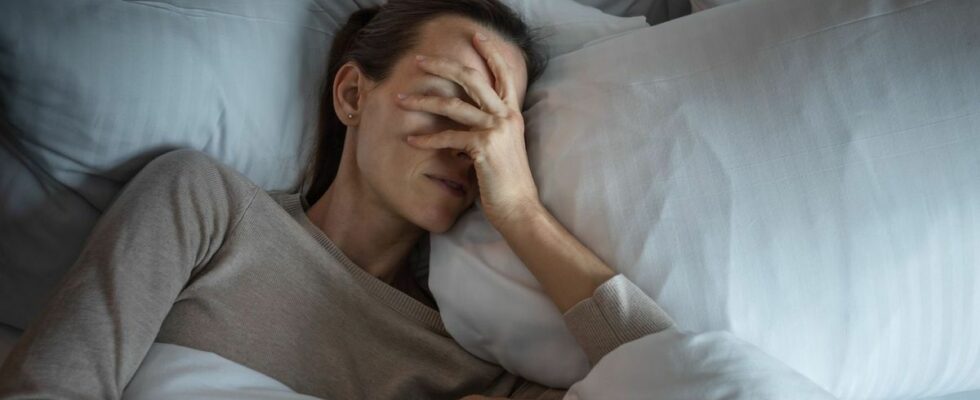Published on
updated on
Reading 2 min.
Sleepmaxxing is a popular trend on TikTok, which involves improving your sleep. Here’s everything you need to know about this trend, and why it could be harmful.
The term “Sleepmaxxing” refers to the effort to maximize the quality and quantity of sleep, as well as the number of hours slept. The goal is to adopt various tips to sleep better: gadgets, lifestyle changes, adjusting shower time, favorable food choices… All of this can quickly become confusing.
The race for perfect sleep
New generations, less inclined to adopt a culture of hard work, are more concerned about their mental health than previous generations. Today, well-being is at the heart of priorities. Aware of the importance of a healthy lifestyle, we aspire to better performance at work, in sport, and in our social life.
It is now well established that sleep is one of the essential pillars for leading this lifestyle. We often hear that a good day begins with a good night. This is why methods to optimize sleep are multiplying and invading our screens.
Among the major players in this phenomenon, TikTok plays a key role in popularizing Sleepmaxxing thanks to its famous “life hacks”: practical advice to improve various aspects of daily life. “The popularity of sleep tips on TikTok shows how young people want to take control of their well-being. Sleep appears to be a simple and concrete way to achieve this” says Dr. Chelsea Perry, founder of Sleep Solutions.
When optimization becomes obsession
Eating two kiwis before sleeping, taking a shower an hour before bed, avoiding coffee after 3 p.m., using sleep trackers to monitor everything… The quest for perfect sleep can quickly turn into an obsession.
The problem ? Wanting to do well often leads to excessive demands on oneself, thus generating stress and anxiety. This phenomenon, applied to sleep, can have even more serious consequences. Indeed, stress and anxiety are recognized as major causes of insomnia, creating a vicious circle: the more you stress about sleeping poorly, the more difficult it is for you to fall asleep.
Additionally, reliance on gadgets or tricks to fall asleep can interfere with one’s natural ability to fall asleep on one’s own. Relying on tricks, no matter how well-intentioned, risks weakening your autonomy, a bit like systematically resorting to sleeping pills. And any form of addiction, even born with good intentions, can be harmful in the long term.
Consult a doctor online for your sleep problems
Get back to basics
Sleep is a natural process. Learning to fall asleep without artifice is essential to preserve your serenity and balance. Most importantly: don’t let the stress of sleeping poorly overwhelm you. Being kind to yourself is an essential key to avoiding adding unnecessary pressure to yourself.
Remember: the more you worry about your sleep, the harder it will be to get rest. So take the pressure off, adopt simple habits and let your body do what it does naturally.

